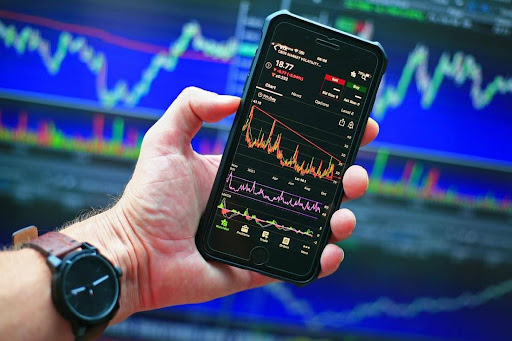The entry of trading apps in the investment space has attracted many new traders and investors into the world of securities. They are convenient and intuitive to use, and this makes people less hesitant about getting into investment in securities. The apps have also made it easier to get started, by simplifying the documentation requirements. In this post, we will discuss how these apps have changed the trading environment significantly.
Benefits of Trading Apps
Accessibility and Convenience
Trading apps have made trading accounts more accessible to the general public that may not be financially affluent. Trading has now reached even those who do not regularly use a computer, by allowing them to start trading with an app on their mobile phones. This allows a new wave of investors into the market that never before had access to it due to the complications that came with it.
Besides the availability of computers, the ease of use that comes with mobile apps is also a major factor in bringing this large wave of fresh investors that have entered the market through trading apps, like the Bajaj Broking app.
Educational Resources and Tools
Although they are easier to access, they still come with the necessary tools and features that are integral to the process of trading. These apps also provide easy access to educational material and learning resources. The fact that they are all available within the app encourages the users to go to them. This might seem like a minor detail but switching apps often discourages people from accessing information or a tool, whereas in-app features motivate the users to try them out.
Challenges and Risks
Market Volatility and Risk
While trading apps have positively impacted the marketspace, they have brought in a new set of issues as well. The hyper-simplification of the trading process now encourages many inexperienced traders to make impulsive decisions without putting in the effort required in making informed decisions. The complexity of trading discouraged such users from trading before trading apps came in. Now, they have entered the market thanks to the ease of access, but end up incurring quick losses due to inexperience.
Overtrading
With such easy access to trading, beginners often tend to get excited and end up overtrading, either in terms of volume or in terms of number of trades. This could result in losses if they are not handling these transactions with care.
Market Manipulation
A large number of retail traders into the market can result in the potential for coordination between them. This can be good and bad. While this can enable the formation of healthy communities for mutual support and education, they can also allow planned efforts to sway the market in a direction by timing mass trades to influence the market.
Impact on Market Dynamics
Rise of Retail Investors
The revolution of trading apps has pushed up the number of retail investors that are active in the market. With a whole new wave of retail investors, the market dynamics have changed and they control the majority of the trading volume in the current financial markets.
Influence on Market Trends
The rise in the number of retail traders has also brought in new trends in the market such as the increased influence of social media over stock prices. The memes and social media trends tend to have an effect on the trading decisions of investors who are highly active on these platforms. This again marks a shift in the market trends.
Conclusion
Trading apps have definitely altered the financial markets significantly. The market has become more mainstream with more people participating in it. It has brought in many low-to-mid level investors and has democratized the derivative trading landscape. This new wave of retail traders have brought with them a new set of market trends. The trading apps in general have their own sets of benefits and risks in the way they have changed the financial markets of late. As with any major change in the economy, this also needs to be observed, interpreted and adopted into the system.


